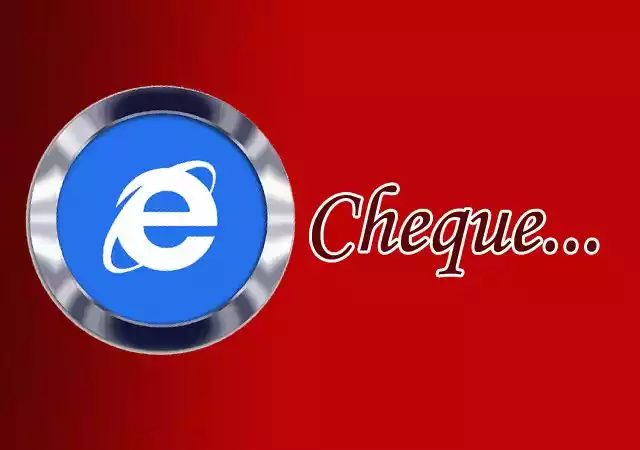A Comprehensive Guide on the Ripple Consequences of Cheque Bounce in India:
In the bustling financial landscape of India, cheques remain a prevalent mode of payment, facilitating seamless transactions among individuals and businesses. However, when a cheque bounces, it triggers a chain of events that can have far-reaching consequences for both the issuer and the payee. Understanding the implications of cheque bouncing is crucial to maintaining financial prudence and safeguarding one’s reputation.
What is a Bank Cheque?
A bank cheque, often referred to as a cashier’s cheque, is a financial instrument issued by a bank on behalf of its account holder. It is a guaranteed form of payment that is drawn directly from the bank’s funds rather than the individual account holder’s account. This characteristic makes bank cheques a secure method for large transactions, providing assurance to the payee that the funds are available.
Who Issues Cheque Book?
When it comes to issuing cheque books, the primary player is none other than your trusted bank. Banks, whether they are national or local, serve as the custodians of your finances and are the authorized entities responsible for providing you with a cheque book.
Who Qualifies for a Cheque Book?
Bank Account Holders: The most straightforward qualification is being a holder of a bank account. Whether it’s a savings account, current account, or any other type, once you have an account with a bank, you become eligible to request a cheque book.
Verification Process: Banks typically have a verification process in place to ensure the authenticity and security of the cheque book issuance. This may include confirming your identity, checking your account history, and ensuring that your account is in good standing.
How to Request a Cheque Book:
The process of obtaining a cheque book is generally user-friendly. Here’s a step-by-step guide:
- Visit Your Bank: Head to your nearest branch or use online banking services to put in a request for a new cheque book.
- Fill Out a Request Form: Banks often have specific request forms for cheque book issuance. Complete the necessary details, including the number of leaves you require.
- Submit Required Documents: Depending on the bank’s policies, you may need to submit identity proof and other relevant documents for verification.
- Choose Cheque Book Type: Some banks offer different types of cheque books, such as personalized or non-personalized. Choose the type that suits your preferences.
- Wait for Processing: Once your request is submitted, the bank will process it, and your cheque book will be either mailed to your registered address or made available for pickup, depending on the bank’s procedures.
Types of cheque

There are many types of cheques, each with its own unique characteristics and purposes. Here are some of the most common types of cheques are Order cheque, Bearer cheque, Crossed cheque, Post-dated cheque, Stale cheque, Blank cheque, Traveler’s cheque, Banker’s cheque, Electronic cheque, etc.
How Bank Cheques Work
When an individual or business requests a bank cheque, they must deposit the corresponding amount, plus any applicable fees, into their bank account. The bank then issues a cheque for that specific amount, payable to the designated payee. Unlike personal cheques, bank cheques are pre-funded, eliminating the risk of insufficient funds or bouncing.
Key Features of Bank Cheques:
- Security: Bank cheques are considered highly secure due to their prepaid nature. This ensures that the payee receives guaranteed funds without the risk of a bounced cheque.
- Widely Accepted: Bank cheques are widely accepted both domestically and internationally. Many businesses and individuals prefer them for high-value transactions due to their credibility.
- Verification Process: Before issuing a bank cheque, the bank verifies the account holder’s funds. This verification process adds an extra layer of security for the payee.
- Customization Options: Account holders can often customize bank cheques with specific payee details, dates, and amounts, adding flexibility to this financial instrument.
Benefits of Using Bank Cheques:
- Security and Reliability: The pre-funded nature of bank cheques ensures that the payee receives a secure and reliable form of payment.
- International Acceptance: Bank cheques are readily accepted across borders, making them a preferred choice for international transactions.
- Record Keeping: The issuance of a bank cheque generates a record of the transaction, aiding in transparent financial management and record-keeping.
Applications of Bank Cheques
Bank cheques find their application in a wide range of financial scenarios:
- Large Payments: For significant transactions, such as property purchases or high-value business deals, bank cheques are the preferred payment method due to their reliability and security.
- International Transactions: When transferring funds overseas, bank cheques offer a secure and convenient alternative to wire transfers.
- Settlement of Debts: Bank cheques serve as a reliable means of settling outstanding debts, providing both parties with peace of mind.
- Tax Payments: Bank cheques are widely accepted for tax settlements, ensuring timely and secure remittance of tax dues.
A bank cheque is a secure and reliable financial instrument that facilitates large transactions with confidence. Its pre-funded nature, wide acceptance, and additional security measures make it a preferred choice for various financial dealings. Whether for real estate transactions, business payments, or international trade, understanding the workings and benefits of bank cheques is essential for navigating the complexities of the modern financial world.
What Constitutes a Cheque Bounce?
A cheque bounce, formally known as a cheque dishonor, occurs when a bank refuses to honor a cheque presented for payment due to insufficient funds in the issuer’s account or other technical reasons such as signature discrepancies. This financial setback can arise from various factors, including inadvertent oversights, miscalculations, or unforeseen circumstances.
Legal Implications of Cheque Bouncing
In India, cheque bouncing is a cognizable offense under the Negotiable Instruments Act, 1881. If a cheque bounces, the issuer faces potential legal repercussions, including:
- Criminal Liability: The payee can file a criminal complaint against the issuer under Section 138 of the NI Act. Upon conviction, the issuer may be sentenced to imprisonment for up to two years or fined up to twice the cheque amount, or both.
- Civil Liability: The payee can initiate a civil suit against the issuer to recover the cheque amount along with accrued interest and legal expenses. The court may order the issuer to repay the outstanding amount and compensate the payee for any damages incurred.
Financial Repercussions of Cheque Bouncing
Apart from the legal implications, cheque bouncing can also have significant financial consequences for the issuer:
- Bank Charges: The issuer’s bank typically imposes a penalty fee for dishonored cheques. These charges can vary depending on the bank’s policies and the cheque amount.
- Reputational Damage: Cheque bouncing can tarnish the issuer’s creditworthiness and reputation, making it difficult to secure loans or conduct business in the future.
- Impact on Relationships: Cheque bouncing can strain relationships between the issuer and the payee, potentially leading to trust issues and business disruptions.
Strained Relationships:
Beyond the legal and financial aspects, the consequences of a cheque bounce can strain personal and professional relationships. Business transactions are built on trust, and a bounced cheque can erode that trust, leading to strained partnerships and damaged reputations. In the interconnected world of commerce, word-of-mouth travels fast, and a negative reputation can have lasting repercussions.
Preventive Measures to Avoid Cheque Bouncing
To minimize the risk of cheque bouncing and its associated consequences, individuals and businesses can adopt proactive measures:
- Maintain Accurate Account Balances: Regularly check account balances and reconcile statements to ensure sufficient funds to cover issued cheques.
- Plan Payments Effectively: Plan payments well in advance to avoid last-minute scrambles and potential miscalculations.
- Issue Stop Payments Promptly: In case of lost or stolen cheques, promptly notify the bank to prevent unauthorized withdrawals.
- Communicate with Payees: Maintain open communication with payees regarding any potential delays or issues with cheque payments.
- Seek Financial Counseling: If facing financial difficulties that may lead to cheque bouncing, consider seeking professional financial counseling to develop effective budgeting and debt management strategies.
Cheque Bounce Penalty by Some Major Banks

| Sl. No. | Bank | Charges |
| 1 | State Bank of India | Cheque/bill deposited with SBI returned unpaid by others (outstation/ local) Cheque/bill up to ₹1.00 lacs – ₹150/- + GST Cheque/bill above ₹1.00 lacs – ₹250/- + GST Cheque Returned Entries for Cheques carried on SBI (for inadequate funds only) (for all segments) ₹500/- + GST (irrespective of the cost) Cheque returned costs for Cheques carried on SBI (for professional reasons) for all shares when the customer is at mistake. ₹150/- + GST |
| 2 | HDFC Bank | Saving A/c Outward: ₹100/- Inward: First cheque results in a quarter – ₹350/-. From another cheque return in the same direction – ₹750/- per return Current A/c Outward: ₹50/- Inward: ₹300/- Dishonour of Outstation Cheques Automatic Savings Outward: ₹100/- Inward: ₹350/- Senior Citizen Account Outward: ₹80/- Inward: ₹350/- |
| 3 | ICICI Bank | Local Charges Cheque placed by the client – ₹100/- (for all cheque return for commercial reasons) Cheque declared by the customer –₹350/- (for one cheque return per month); ₹750/- per statement in the same month for business or financial reasons. ₹50/- for non-financial purposes except for signature confirmation for each cheque return for business reasons. Outstation Charges Outstation cheque collected by the client – ₹150/- + other bank charges at actuals per cheque. |
| 4 | Axis Bank | Return of cheques collected at the home branch for limited clearing – ₹500/- per cheque |
| 5 | Bank of Baroda | Cheque (collected by BOB’s client and returned overdue (Inward Return) Up to ₹1 lac – ₹125/- Above ₹1 lac to less than ₹1 crore – ₹250/- Above ₹1 crore – ₹500/- Cheque (carried on BOB) paid (Outward Return)– (Financial Reason) Up to 1 lac – ₹250/- Above ₹1 lac to less than ₹1 crore – ₹500/- For ₹1 crore and above – ₹750 per instrument In case the bank continues out of funds; original interest is at 7.5% over base rate is to be credited extra For other reasons – ₹250/- |
Legal Action Can Be Taken for Cheque Bounce in India
Cheques have long served as a trusted instrument for facilitating seamless payments between individuals and businesses. However, when a cheque encounters the unfortunate fate of bouncing, it triggers a chain of events that can have far-reaching legal implications. Understanding the legal recourse available for cheque bouncing in India is crucial for individuals and businesses alike to protect their financial interests and uphold their rights.
Potential Outcomes of Legal Action
The outcome of legal action for cheque bouncing depends on the specific circumstances of the case and the strength of the evidence presented. However, the potential outcomes may include:
- Imprisonment: Upon conviction under Section 138 of the NI Act, the issuer may face imprisonment for up to two years.
- Fine: The issuer may be fined up to twice the amount of the bounced cheque.
- Repayment of Cheque Amount: The issuer may be ordered to repay the cheque amount along with interest and legal expenses.
- Compensation: The payee may be awarded compensation for any damages incurred due to the bounced cheque.
End Note on Consequences of Cheque Bounce
The issuance of a cheque book is a straightforward, yet crucial process handled by banks. As an account holder, having a cheque book empowers you to conduct a range of transactions with ease and flexibility. Understanding who issues cheque books and the simple steps involved in obtaining one ensures that you can make the most of this fundamental financial instrument for your personal and business needs.
However, Cheque bouncing is a serious financial and legal matter that can have far-reaching consequences for individuals and businesses. By understanding the implications of cheque bouncing and adopting preventive measures, individuals can safeguard their financial well-being, maintain their reputation, and protect their relationships with payees.
Consequences of Cheque Bounce – Related FAQs
What is Bank Cheque?
A bank cheque, often referred to as a cashier’s cheque or banker’s cheque, is a financial instrument issued by a banking institution on behalf of an account holder.
Is there any charges for cheque bounce?
Yes, in the case of cheque bounce the respective banks charge both the defaulter and the payee.
What is the charge of cheque bounce?
The charges for cheque bouncing vary depending on the bank’s policies, cheque amount, and some other aspects.
What is the new rule of cheque bounce?
The new law has implemented more stringent penalties for individuals with a history of repeated offenses. In cases where an individual has been found guilty of cheque bouncing on two or more occasions, they may be subjected to imprisonment for a maximum period of two years, coupled with a fine amounting to double the value of the bounced cheque.

